AFGHAN ENDGAMES
South Asia in World Affairs Series
T. V. Paul, Series Editor
Editorial Advisory Board
Rajesh Basrur
Maya Chadda
Stephen P. Cohen
C. Christine Fair
Timothy Hoyt
Paul Kapur
Rajesh Rajagopalan
Aseema Sinha
AFGHAN ENDGAMES
STRATEGY AND POLICY CHOICES FOR AMERICAS LONGEST WAR
HY ROTHSTEIN AND JOHN ARQUILLA, EDITORS
Published in 2012 by Georgetown University Press, Washington, DC.
www.press.georgetown.edu
Cover design and text design Georgetown University Press. Georgetown University Press claims no copyright to the content of this book. Quotes and illustrations from previously published works cited in the text may be copyright protected.
Library of Congress Cataloging-in-Publication Data
Afghan endgames: strategy and policy choices for Americas longest war / Hy Rothstein and John Arquilla, editors.
p. cm. (South Asia in world affairs series)
Includes bibliographical references and index.
ISBN 978-1-58901-908-9 (pbk.: alk. paper)
1. Afghan War, 20012. AfghanistanStrategic aspects. 3. United StatesMilitary policy. 4. United StatesRelationsAfghanistan. 5. AfghanistanRelationsUnited States. I. Rothstein, Hy S. II. Arquilla, John.
DS371.412.A318 2012
958.1047373dc23
2011036098
This book was made possible in part by a research grant from the US Department of Defense. All statements of fact, opinion, or analysis expressed are those of the authors and do not necessarily reflect the official positions or views of the US government or any US government agency. Nothing in the content of the book should be construed as asserting or implying US government authentication of information or agency endorsement of the authorss views.

This book is printed on acid-free paper meeting the requirements of the American National Standard for Permanence in Paper for Printed Library Materials.
15 14 13 12 9 8 7 6 5 4 3 2 First printing
Printed in the United States of America
To the memory of General Wayne A. Downing
CONTENTS
Hy Rothstein and John Arquilla
Victor Davis Hanson
Thomas Barfield
Hy Rothstein
Andrew J. Bacevich
Frederick W. Kagan
Edward N. Luttwak
Scott Sigmund Gartner and Leo Blanken
Russell Muirhead
Robert Reilly
Jade I. Rodriguez and Rebecca Lorentz
John Arquilla and Hy Rothstein
ACKNOWLEDGMENTS
This book began as a research project funded by the Office of the Secretary of Defense. We would like to thank Ben Riley, a principal deputy in the office of the Assistant Secretary of Defense for Research and Evaluation, for his generous support and encouragement. His agile mind and keen insights have done much to guide and advance this work and other undertakings of ours over the years. We also want to thank Nancy Ann Budden, director of the Defense Counter Terrorism Technology Office, who has an uncanny ability to recognize fresh ideas and ensure that they are drawn to the attention of the appropriate authorities in Washingtonand elsewhere.
At Georgetown University Press, Don Jacobs and the entire staff worked swiftly and exceptionally efficiently on our behalf, with patience and never-failing good grace. Here at the Naval Postgraduate School, our colleague Rebecca Lorentz coauthored one of the books chapters, but also worked tirelessly to help with the editing of the entire manuscript. It is hard to see how we could have stayed on trackmuch less on schedulewithout her clear vision and organizational skill.
It is also apparent to us that we have enjoyed blessings beyond count in the form of our contributorsan all-star cast of experts across the range of fields relevant to solving the strategic riddles of Afghanistan. To each of them we offer our frank admiration and humble thanks.
Finally, we acknowledge with profound respect and deep gratitude the extraordinary sacrifices of all the veterans of the war in Afghanistan. We have visited with and listened to many of them, always coming away with fresh perspectives and a determination to keep on fighting for policies and strategies that will honor their service with success, and bring an end to the long suffering of the Afghan people.
PREFACE
In most wars the outcome is often predictable long before the fighting stops. The fate of the Axis powers in World War II was foreseeable as early as 1942, with the defeat of the Germans at Stalingrad and the Japanese at Midway, yet the conflict raged on until 1945. Similarly, 1968 was the watershed time in the Vietnam War; by then it was clear to many that the United States would not defeat the insurgents. Still, American forces fought on for several more years and Saigon did not fall and become Ho Chi Minh City until 1975. This pattern of knowing the outcome long before the war ends has held as well when guerrillas have been beaten, from the Kenyan Mau Mau and the Malayan insurgents of the 1950s, and in many irregular wars ever since.
The current conflict in Afghanistan, however, has broken the mold. After more than a decade of hard fighting, either side could still win. For the insurgents, victory would most likely come in two phases: First there would be the withdrawal of foreign forces; then the Taliban would come back into power. For the American-led coalition, winning seems as hard to define as it has been to achieve. The favored outcome of a strong, legitimate central government presiding over a period of peace is not likely to emerge. But the thwarting of Taliban aims, the defeat of local al-Qaeda elements, and the rise of some form of effective governance may all be well within the realm of possibility.
The chance of gaining a successful outcome can be maximized by adjusting the allied coalitions strategic aims; and determining the range of options that might be pursued through such a shift is the goal that animates our study. The prospects for strategic adjustment, even this late in the war, have generated much interest in the Office of the Secretary of Defense, particularly on the part of Ben Riley, a senior official who encouraged us to bring together the best analytical team possible. We have assembled some of the finest minds in the fields of military history and strategy, anthropology, ethics, and communications to take a fresh look at the war in Afghanistan.
The first task undertaken was to dispel the popular myth of Afghan invincibility and its corollary: that Afghanistan itself is a forbidding graveyard of empires. From the ancient Greeks to the British in the nineteenth century, foreign control has been a common occurrence in Afghan history. But if not a graveyard, Afghanistan has nevertheless become something of a charnel house during the past three decades of near-constant warfare. Well over a million Afghans have died, most at the hands of Russian occupying forces in the 1980s. But the civil war that followed their departure eventually escalated to become very bloody as well. With all this suffering in mind, it seems clear that the primary goal of a winning strategy should be to find a way to stop, or sharply stem, the killing. Thus, each of the alternatives developed in this book has been designed to save Afghan lives.

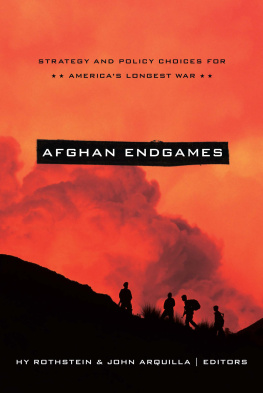

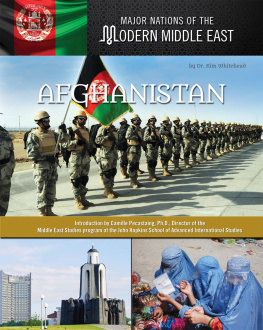
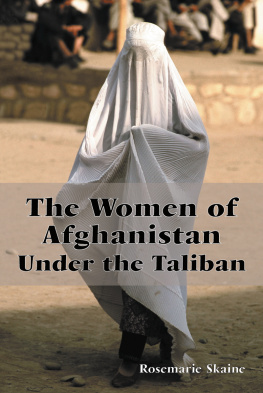
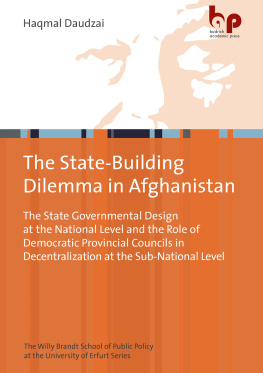
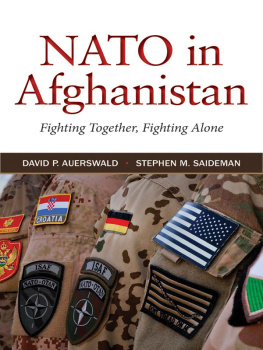

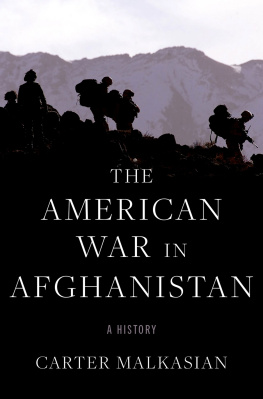
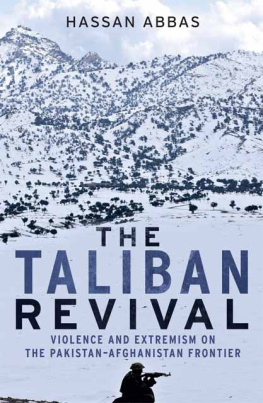
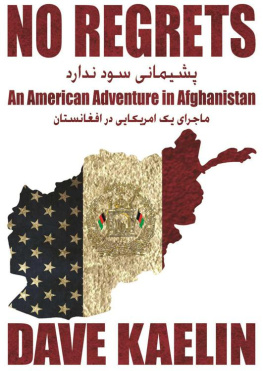


 This book is printed on acid-free paper meeting the requirements of the American National Standard for Permanence in Paper for Printed Library Materials.
This book is printed on acid-free paper meeting the requirements of the American National Standard for Permanence in Paper for Printed Library Materials.